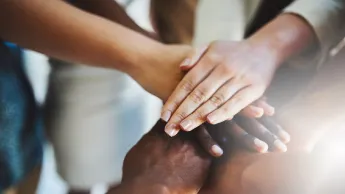How do you stand up for more equality? What do you want to achieve with your commitment?
Mala Pandurang:
II am fortunate that my institution comes under the umbrella of “Seva Mandal Education Society”. This Trust opened its first women-only college in 1957 with just seven students, and now has seven colleges under its umbrella and 5,500 students on campus. We also admit an increasing number of students from minority communities as well low-income areas in the vicinity. The vision of the management is empowerment of women through quality of education. As the head of the institution, I am committed to implementing a policy to admit students for undergraduate education irrespective of their entry grades, as long as places on the respective courses are available. This is because , more often than not, the poor academic performance of female students is a result of a number of other factors other than just academic acumen or an intelligence quotient.
I am also of the firm belief that every student deserves the right to the best education opportunities and support services and I am committed to ensure that my students get the same facilities and support services that students in more elite institutions avail themselves of. This commitment also involves leaving no stone unturned to generate funds from well-wishers and patrons that will allow the institution to offer freeships and scholarships. I am committed to education as a means of empowerment, both professionally and personally. I believe that every individual student should have similar opportunities and equal chances for getting a quality education that will enable them reach their full potential and maximise their capacity for equality, in terms of both horizontal equality – where all people are considered equal irrespective of their status, caste, religion or gender – and vertical equality, which will eventually bring about equal opportunities.
Juan Auz:
I have been working with indigenous peoples’ organisations to help them harness the power of law and advocacy so that they may stand up to the deeply problematic, ethical issue of third parties who profit at the expense of their territories, a practice that is by no means a good example of equality. The legal representation of those affected by extractive activities – often inspired by stories of others who have successfully defended their dignity – and the knowledge of how to deploy legal and advocacy tools have proven to be very effective when fighting against injustice and inequalities. In that sense, my work has been that of a facilitator: someone who communicates about how we can empower these communities through the understanding of the law and human rights.
This approach has given me the opportunity to build new types of bridges between worlds, especially since the old ones did not favour indigenous communities at all. I believe this engagement humbly contributes to a more sustainable, just and responsible planet, not only for nature’s sake, but also for its ancestral custodians.
Eeva Rantamo:
Inclusive cultural work is my sphere of action, where I can use my particular knowledge and skills.
Working for inclusion is only possible in the context of working for equal rights. Arts and culture shape our image of the world. They are a means of enlightenment and liberation, but can also be abused for purposes of marginalisation and oppression.
All humans have the same right to enjoy arts and culture for their own enlightenment and liberation as they choose. Based on this principle, I continuously try to work with all involved parties to create the necessary conditions for more liberating opportunities in arts and culture. To find good solutions, I cooperate with the institutions on analyses and concepts, conduct trainings and establish contact with other professionals.
Our experts
Elena Lipilina:
I relentlessly stand up for more equality by promoting the idea of sport as one of the platforms that can empower women and the importance of equal representation of women both in professional and recreational sport. It has huge potential to empower women and girls. In many countries, it has been recognised that sport can be a force to amplify women’s voices and tear down gender barriers and discrimination.
Women in sport defy the misperception that they are weak or incapable. There is already sufficient evidence that participation in sports and making them available to women can exponentially improve their self-esteem and contribute to development of leadership skills and on top of that, unite women regardless of their nationality, social status, age, physical ability and sexual orientation. To demonstrate this idea, I designed the Women’s Summer Games as a scalable global project that aims to create a “women's recreational Olympic Games” that not only promotes the open participation of non-professional and amateur teams and female athletes but also strives to be an international advocacy event for gender equality.
Marco Tulio Pereira Silva:
I stand up for more equality by spreading awareness about diversity and inclusion. The more people who acknowledge difference, the sooner we can reach equality of rights and opportunities. Setting a good example is also a way of raising awareness about the importance of coexistence, and therefore, equality.
With my commitment, I want to positively influence people, companies and governments so that the whole society may work together towards equality and inclusion of all of us diverse human beings.

